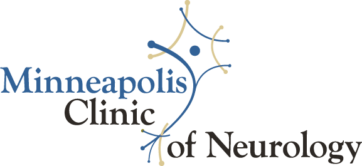A concussion is a type of traumatic brain injury caused by a bump, blow, or jolt to the head. Concussions can occur from a fall or a blow to the body that causes the head and brain to move quickly back and forth. Doctors may describe a concussion as a “mild” brain injury because concussions are usually not life-threatening. Even so, their effects can be serious. Most people with a concussion recover quickly and fully, but for some people, symptoms can last for days, weeks, or longer. (Centers for Disease Control and Prevention)
It is important to recognize the signs and symptoms of a concussion in order to receive proper care directly following the injury. People often experience physical, cognitive, visual, behavioral, and personality changes after sustaining a concussion. If these symptoms do not resolve within 2-4 weeks, this may indicate that a person is experiencing post-concussive syndrome. If a person continues to demonstrate signs and symptoms of post-concussive syndrome, a referral to a concussion rehabilitation program is appropriate in order to assist in a full and timely recovery.
Post-concussive syndrome often includes the following symptoms:
- Headaches
- Dizziness
- Balance difficulties
- Neck pain
- Noise and light sensitivity
- Visual disturbances
- Difficulty concentrating
- Poor short-term memory
- Delayed processing
- Irritability
- Fatigue
- Sleep disturbances
Minneapolis Clinic of Neurology Concussion Rehabilitation
MCN Rehabilitation’s evidence-based protocol, developed with our neurologist experts, is designed to assist patients in a full and timely recovery after sustaining a concussion.
Treatment often focuses on:
- Balance and dizziness
- Endurance/exercise readiness
- Vision and vestibular problems
- Neck pain
- Cognitive performance
Therapy interventions often include:
- Improving visual and cognitive performance during daily activities, including visual and cognitive challenges to regain function
- Reduction of headaches and neck pain through manual therapy, exercises and postural education
- Reduction of dizziness and improved balance through vestibular and cervicogenic dizziness rehabilitation
- Activity and environmental modification instruction to improve tolerance for resumption of daily activities at home, in the community, and at work
- Education and training for safe return to sport and physical activity
- Education and training for safe return to school or work
For further information about Concussion and and Traumatic Brain Injury, see our Neurology Library article for Adults and Pediatrics.
